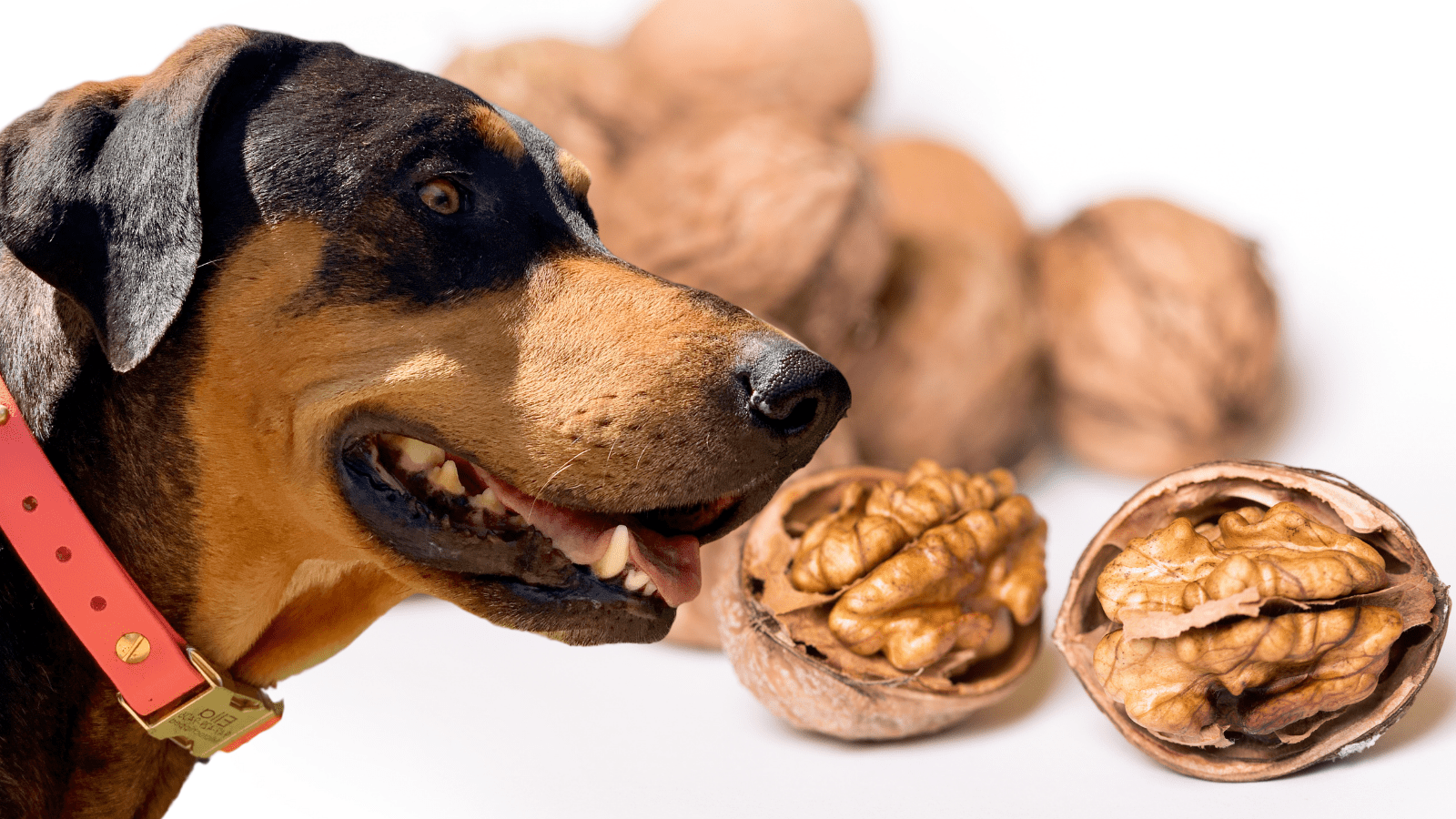Many pet owners often wonder about what human foods are safe for their dogs, and nuts are no exception. Although nuts can be a nutritious snack for humans, it’s essential to consider whether they are suitable for dogs. In this article, we will explore whether dogs can eat walnuts and the potential risks associated with it.

Credit: thescoobylife.com
Are Walnuts Safe for Dogs?
Let’s address the question: can dogs eat walnuts? While plain, store-bought walnuts themselves are not necessarily toxic to dogs in small quantities, it’s crucial to be aware of various potential risks associated with feeding walnuts to your furry friend.
Firstly, walnuts are high in fats that can upset your dog’s stomach and may lead to diarrhea or vomiting. In severe cases, consumption of walnuts can potentially result in more serious conditions such as gastroenteritis or pancreatitis. Furthermore, walnuts pose a choking hazard and may cause intestinal blockage, leading to complications requiring immediate veterinary attention.
Types of Walnuts and Their Effects on Dogs
It’s important to distinguish between different types of walnuts and their respective impact on dogs. While English walnuts are generally considered safe for dogs to eat in very small portions, black walnuts are toxic to dogs. Therefore, pet owners should exercise caution and avoid feeding black walnuts to their dogs.
Other Nuts to Avoid
Aside from walnuts, there are other nuts that should be avoided when it comes to feeding your dog. Macadamia nuts, pistachios, and old or moldy walnuts are highly toxic to dogs and can lead to severe health implications if consumed. Additionally, raw cashews should be avoided for dogs and are toxic for cats, while pecans are considered harmful to dogs due to the presence of a compound called juglone.

Credit: www.petco.com
Safe Alternatives and Treats for Dogs
While some nuts are not suitable for dogs, there are several safe alternatives and treats that you can offer to your furry companion. Fruits like bananas can be a great low-calorie treat for dogs, being high in potassium, vitamins, biotin, fiber, and copper. It’s crucial to ensure that any treats provided to your dog are offered in moderation and as part of a balanced diet to avoid any adverse effects on their health.
Frequently Asked Questions For Can Dogs Eat Walnuts?
What Happens If A Dog Eats A Walnut?
Walnuts contain high fats that can upset a dog’s stomach and cause diarrhea or vomiting. In more serious cases, it can lead to conditions like gastroenteritis or pancreatitis. Additionally, they present a potential choking hazard and might cause intestinal blockage.
It’s best to avoid feeding walnuts to dogs.
Which Nuts Are Toxic To Dogs?
Walnuts are toxic to dogs. They are high in fats that can cause upset stomach, diarrhea, and vomiting. Consumption of walnuts may lead to serious conditions like gastroenteritis or pancreatitis. Additionally, walnuts can pose a choking hazard and potentially cause intestinal blockage.
It’s best to avoid feeding walnuts to your dog.
Are Walnuts Or Pecans Toxic To Dogs?
Walnuts and pecans are toxic to dogs and can lead to digestive issues and more severe conditions, requiring immediate vet attention.
Can Dogs Eat Bananas?
Yes, dogs can eat bananas. Bananas are low-calorie treats for dogs, rich in potassium, vitamins, fiber, and copper. They are a healthy snack option due to low cholesterol and sodium content. However, bananas should be given in moderation as they are high in sugar.
Conclusion
In conclusion, while it may be technically safe for dogs to consume a few store-bought and unsalted walnuts, it’s best to err on the side of caution and avoid feeding walnuts to your dog. The potential risks such as stomach upset, choking hazard, and intestinal blockage outweigh any potential benefits. As responsible pet owners, it’s essential to prioritize the overall well-being of our furry companions and make informed decisions about their dietary needs.
